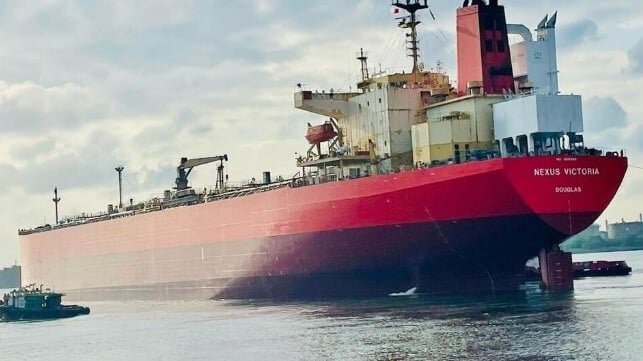The Future of Maritime Decarbonisation: A Breakthrough Study on Onboard Carbon Capture and Storage
The Global Centre for Maritime Decarbonisation (GCMD) based in Singapore has recently unveiled a groundbreaking study that delves into the emissions savings and costs associated with onboard carbon capture and storage systems. This comprehensive analysis, named COLOSSUS (Carbon capture, offloading, onshore storage, utilization, and permanent storage), sheds light on the potential of incorporating this technology into the maritime industry.
Traditionally, life cycle assessments for carbon capture technologies have focused on onshore applications, leaving a gap in understanding the overall greenhouse gas (GHG) emissions from deploying these solutions onboard vessels. The COLOSSUS study aims to bridge this gap by providing shipowners with valuable insights to aid in their decision-making process.
Key Findings and Implications
The study explores five different onboard carbon capture and storage (OCCS) technologies, six marine fuel options, and three post-capture scenarios. One of the most promising findings is the potential for significant emissions savings, with a base case demonstrating a 29 percent reduction in GHG emissions for a vessel using the most advanced OCCS technology.
Furthermore, by combining OCCS with biofuels such as bio-LNG and biodiesel, emissions reductions of up to 121 percent well-to-wake can be achieved. The study also highlights the effectiveness of using captured CO2 in concrete production, which can further enhance emissions savings across the carbon value chain.
Cost and Operational Considerations
While the study acknowledges that post-capture transport and permanent storage of CO2 add minimal emissions, it also outlines the cost implications of implementing OCCS. The cost of avoided carbon for OCCS with permanent storage is estimated to be between $269 to $405 per ton of CO2 for a 40 percent gross capture on a medium-range tanker.
Additionally, the study presents a pathway for extending the economic life of existing vessels by adopting OCCS technologies. By deploying OCCS with a 40 percent gross capture rate, ships can remain compliant with emissions targets until 2032 for HFO-fueled vessels and 2035 for LNG-fueled vessels.
Looking Towards the Future
Professor Lynn Loo, CEO of GCMD, emphasizes the importance of understanding the net abatement impact of decarbonisation solutions across industries and value chains. The study serves as a foundation for shaping regulatory frameworks surrounding OCCS and assisting decision-makers in making informed, value chain-based decisions.
While current regulatory frameworks may not explicitly address emissions reductions from OCCS, the study provides a structured basis for evaluating the technology’s potential in emissions management for shipowners and operators.
Overall, the COLOSSUS study represents a significant step towards achieving sustainable maritime decarbonisation and underscores the role of onboard carbon capture and storage in shaping the future of the industry.

